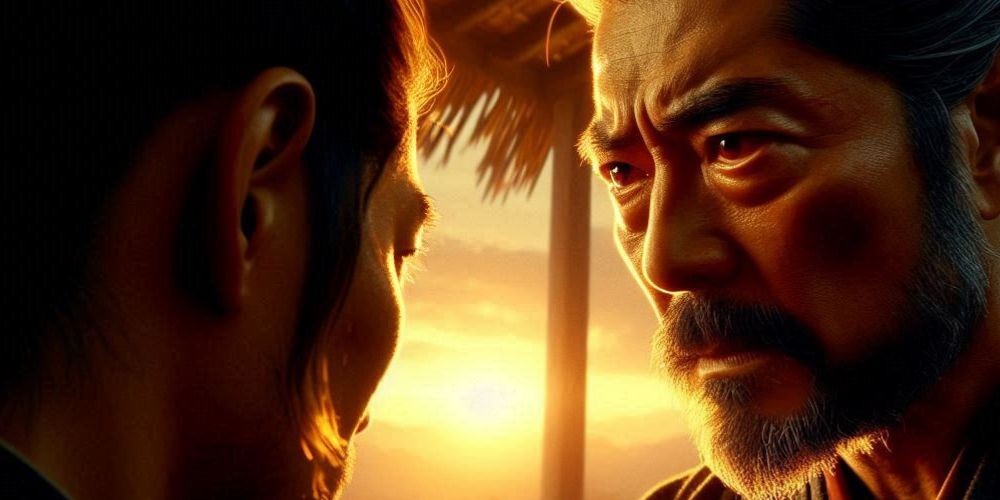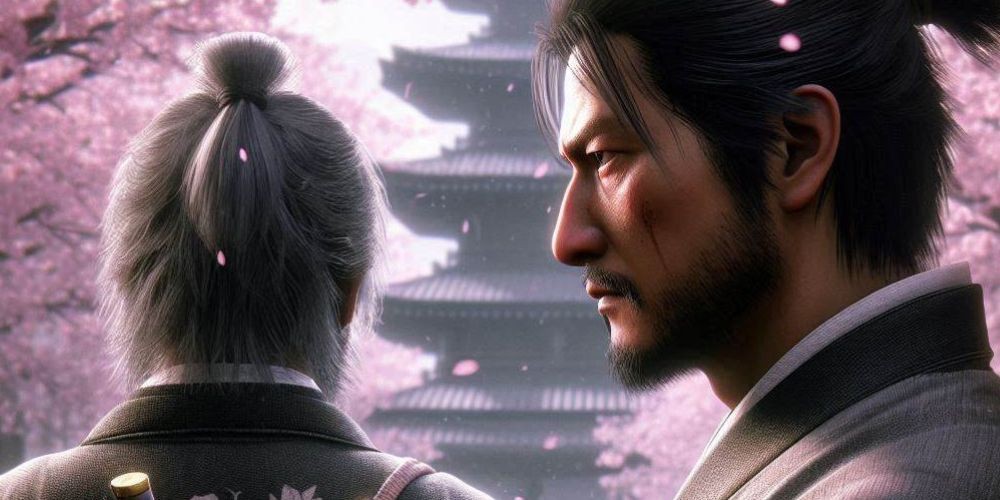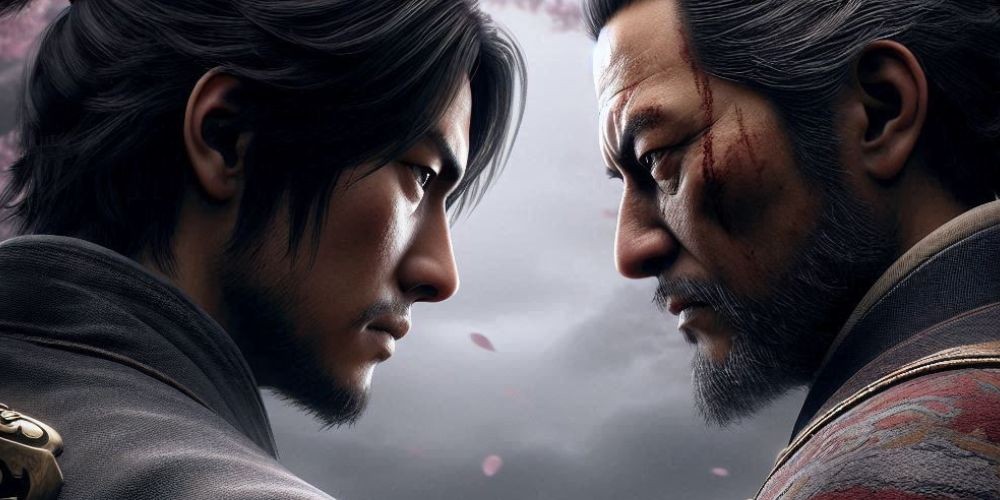Choosing to Spare Lord Shimura in Ghost of Tsushima
- 0

Ghost of Tsushima, an epic tale of samurai honor and personal rebellion, has captivated players with its powerful narrative and breathtaking visuals. At its climax, the game forces its protagonist, Jin Sakai, to confront a heart-wrenching decision: to end the life of his uncle, Lord Shimura honorably or to defy tradition and spare him. This choice is not just a question of life and death but a profound examination of what it means to be honorable in a world torn apart by war and strife.
When faced with the option to spare Lord Shimura, Jin Sakai defies the very samurai code he has lived by all his life. In this moment, Jin chooses familial love over rigid honor, symbolizing his complete transformation into the Ghost. Jin declares to his uncle that neither of them has any remaining honor and refuses to be the instrument of Shimura's death. In a heart-wrenching scene, Jin kneels beside his uncle, telling Shimura that he will not end his family line, leaving his uncle to face the uncertain wrath of the Shogun for failing his mission.
The decision to spare Lord Shimura creates a nuanced, bittersweet conclusion. Although Jin walks away as the Ghost, leaving behind the traditional samurai code, this choice opens up the potential for future growth and continued resistance against oppressors. Players are left with the stark realization that both Jin and his uncle may never find peace, but in sparing his uncle, Jin upholds the very humanity the samurai code sought to protect. This resonates deeply as it underscores Jin's final break from the past and his acceptance of a new, albeit dishonorable, path.
Rewards and New Horizons

Choosing to spare Lord Shimura unlocks specific rewards within the game. Players receive the Vow of Vengeance dye color, a token symbolizing Jin’s commitment to his new path as the Ghost — a figure of rebellion and defiance rather than honorable warfare. Additionally, Jin finds a new home at Tradition’s End, symbolically illustrating his departure from the samurai code and the establishment of a new identity. This home not only serves as a new base of operations but is also a tangible representation of Jin's rejection of his past life and honor.
Moreover, the sparing of Lord Shimura leaves his story open-ended, allowing players to imagine future events and possibilities. While the text suggests it is likely that Shimura faced dire consequences from the Shogun, this ambiguity invites a level of engagement and speculation that enriches the player's experience. The emotional weight of the decision hangs over the player, emphasizing the ongoing struggle between honor and survival, tradition and change.
Choosing to Honor Lord Shimura’s Final Wish
On the other hand, choosing to honor Lord Shimura’s final request — an honorable death — brings a different kind of resolution. When Jin consents to his uncle's wishes, the final act is a tribute to the samurai code they both cherished. Gene assures his uncle that he will be remembered as a grand fighter and wise leader. In this poignant moment, both characters acknowledge their bond and the painful divergence of their paths. As Jin plunges the blade into his uncle’s body, he does so with tears, representing not just the loss of a family member but also the end of an era for himself.

This option arguably provides a more traditional sense of closure. By granting his uncle the death he desires, Jin temporarily redeems himself in the eyes of samurai honor. However, this action also isolates Jin further, transforming him entirely into the Ghost — a warrior without family, honor, or name. The profound grief that accompanies this decision highlights the immense personal sacrifice Jin makes, reinforcing that true honor comes at a high cost. This ending leaves players with a deeper understanding of the complexities of honor and duty, pushing them to reflect on the balance between the two.
Legacy and Impact
The decision to honor or spare Lord Shimura extends far beyond the immediate aftermath of the final duel. Each choice leaves an indelible mark on Jin’s character, representing different facets of his journey and future potential. While sparing Shimura aligns Jin with the path of the Ghost, embodying resistance and unorthodox methods, honoring Shimura’s final wish reaffirms Jin's connection to his roots, even as he steps away from the samurai way.
Both endings of Ghost of Tsushima carry their own emotional weight and provide players with a rich tapestry of thought-provoking themes. Whether Jin steps into the unknown as a rebellious Ghost or carries the weight of his uncle’s honorable death, his story is a powerful exploration of duty, love, and transformation. Ultimately, Ghost of Tsushima challenges players to question the true meaning of honor and what one is willing to sacrifice for family, identity, and freedom.
In the end, Ghost of Tsushima masterfully blends narrative depth with player choice, ensuring that Jin Sakai’s journey — and the island of Tsushima’s fate — remain profoundly impactful long after the final duel. Each ending unfolds a different vision of Jin's future, making every decision resonate on both a personal and epic scale.
